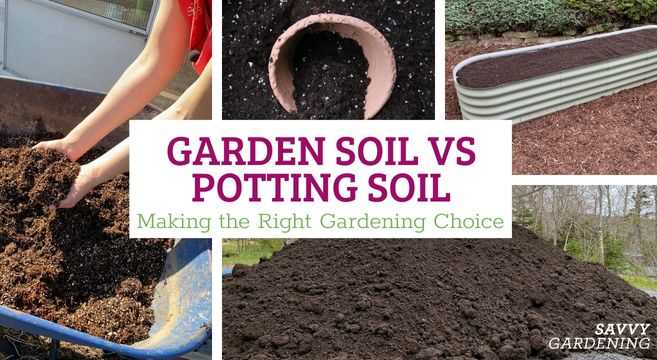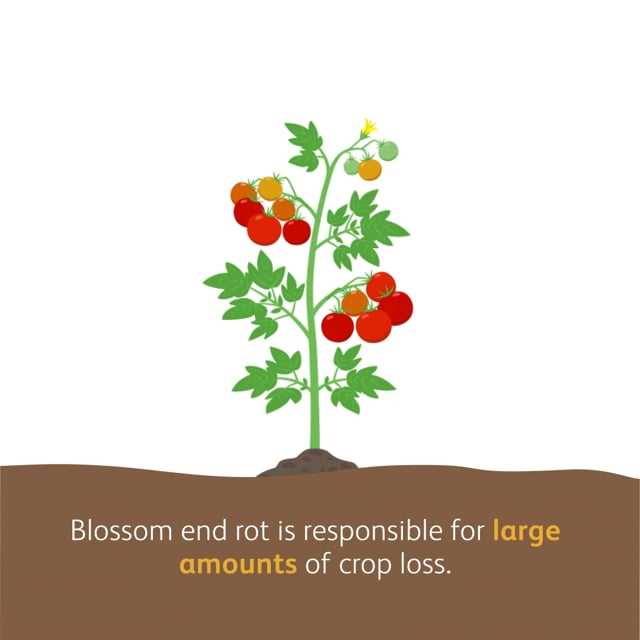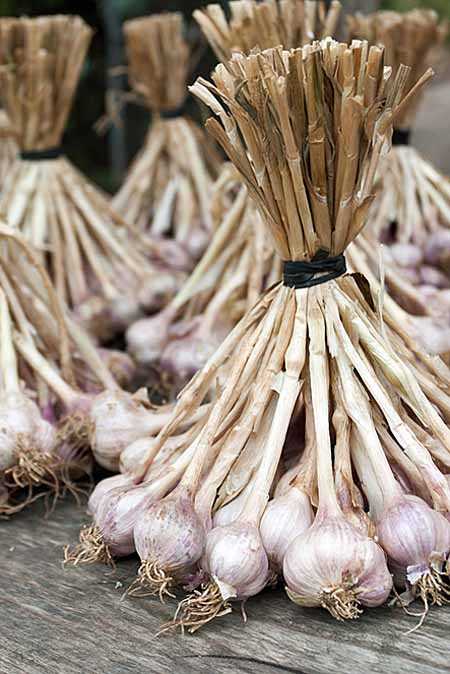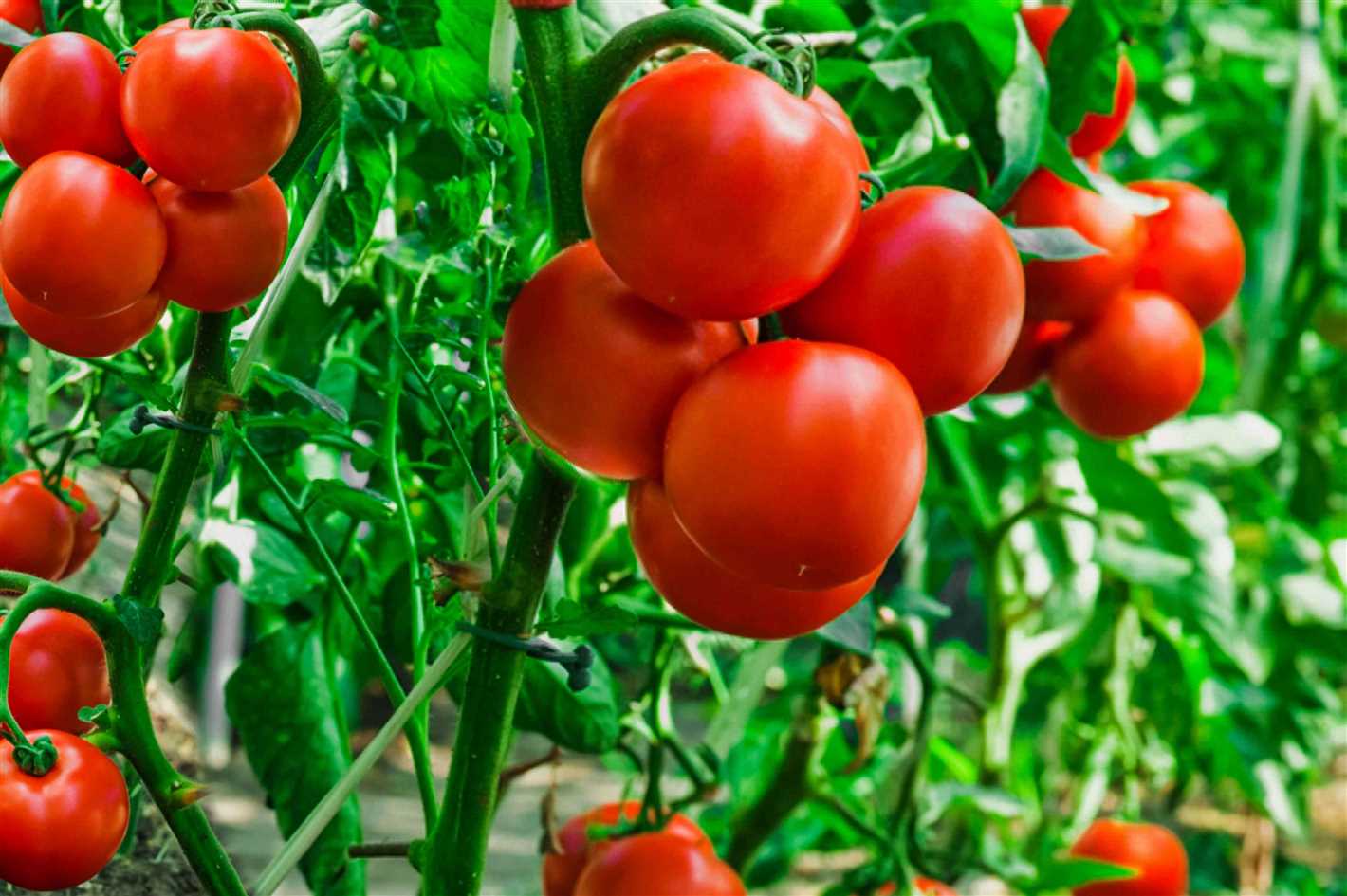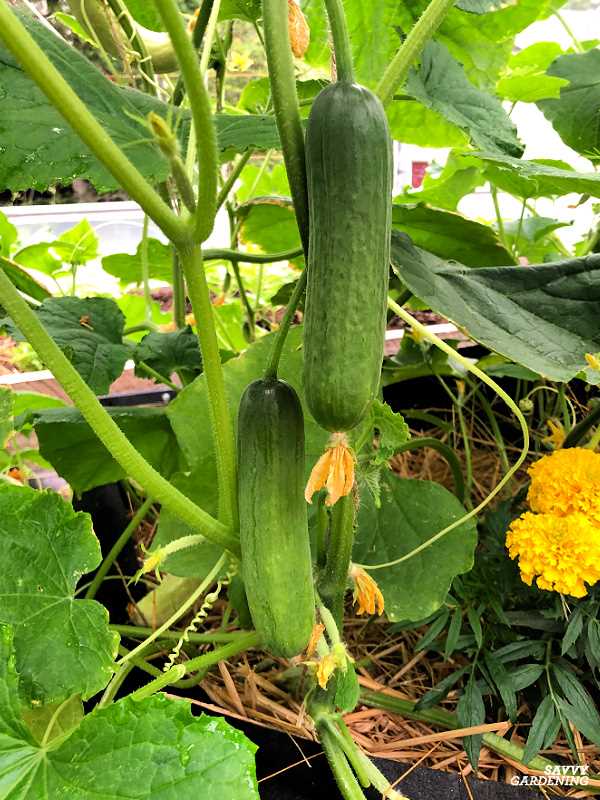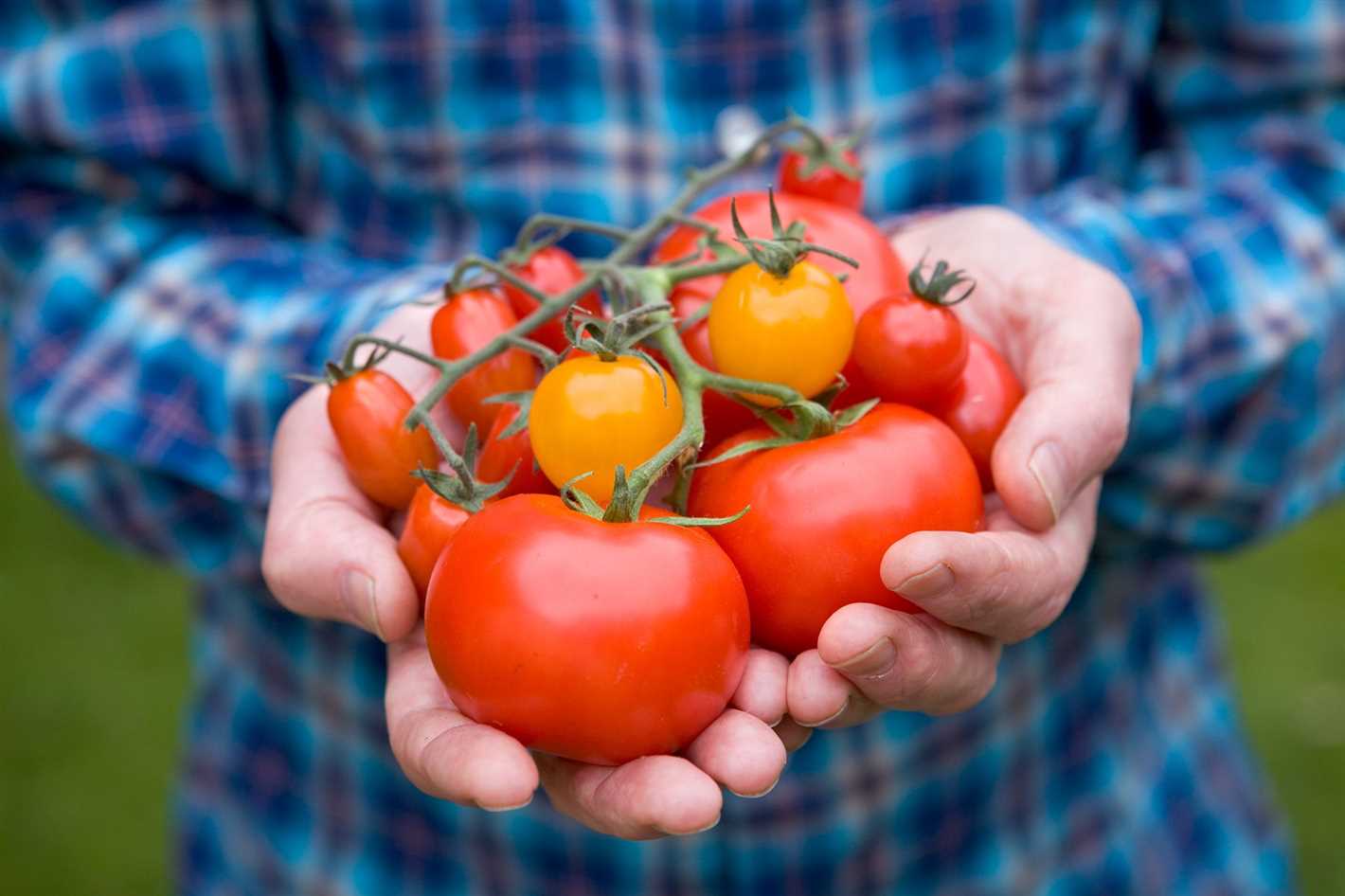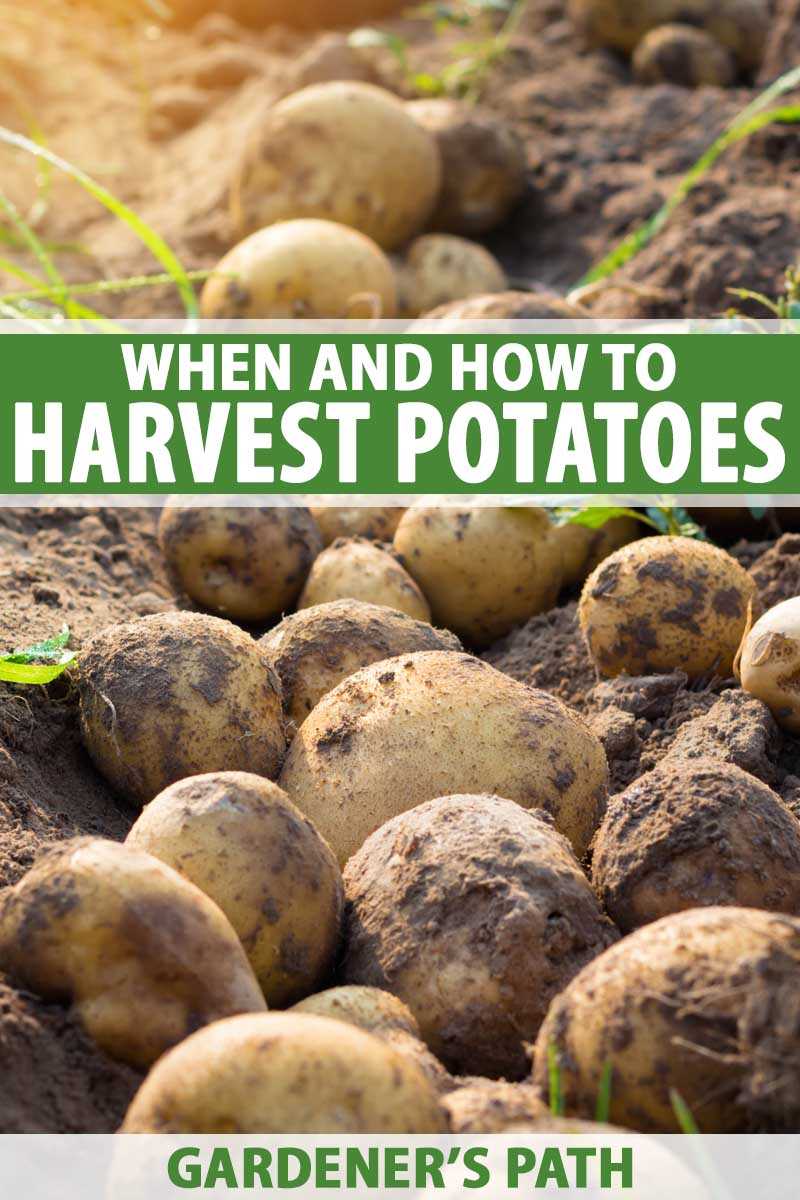- Why Grow Cucumbers on the Balcony?
- Choosing the Right Varieties for Balcony Gardening
- Growth Habit
- Container Size
- Climate
- Days to Maturity
- Disease Resistance
- Taste and Texture
- Compact Varieties
- Container-Friendly Varieties
- Compact Bush Varieties
- Dwarf Varieties
- Patio Snacker
- Climbing Varieties for Vertical Gardening
- 1. English Telegraph
- 2. Lemon Cucumber
- 3. Burpless Beauty
- 4. Marketmore 76
- 5. Straight Eight
- Conclusion
- Essential Conditions for Successful Cucumber Growth
- Adequate Sunlight
- Proper Watering and Drainage
- Watering Tips:
- Drainage Tips:
- Nutrient-Rich Soil
- 1. Organic Soil
- 2. Well-Draining Soil
- 3. pH Balance
- 4. Organic Matter
- 5. Nutrient Supplements
- 6. Mulching
- Tips for Growing Cucumbers on the Balcony
- 1. Choose the Right Containers
- 2. Select the Best Cucumber Varieties
- 3. Provide Ample Sunlight
- 4. Use Quality Potting Soil
- 5. Water Consistently
- 6. Provide Support
- 7. Fertilize as Needed
- 8. Monitor for Pests and Diseases
- 9. Harvest at the Right Time
- 10. Rotate your Crops
- “Question-Answer”
- Can I grow cucumbers on my balcony?
- What are the best cucumber varieties for growing on a balcony?
- How much sunlight do cucumber plants need?
- How often should I water my balcony cucumber plants?
- Do I need to provide support for my cucumber plants on the balcony?
- Can I grow cucumbers on a small balcony?
- “Video” Tips to grow high yielding cucumbers at home, if you do it this way
Growing your own cucumbers on the balcony can be a rewarding and satisfying experience. Not only do cucumbers add freshness and flavor to your meals, but they are also relatively easy to grow in small spaces. With the right varieties and a few simple tips, you can enjoy a bountiful harvest of crisp, homegrown cucumbers right from your own balcony.
When it comes to choosing the best varieties of cucumbers for balcony gardening, there are a few factors to consider. Firstly, opt for compact or dwarf varieties that are specifically bred for container gardening. These varieties will have a more manageable size and produce well in limited spaces. Additionally, look for varieties that have a shorter growing season, as this will ensure that you can enjoy fresh cucumbers sooner rather than later.
One popular variety to consider is the ‘Bush Champion’ cucumber. This compact variety is ideal for balcony gardening, as it only grows to about 2 feet in height and produces an abundance of tasty, slicing cucumbers. Another excellent choice is the ‘Patio Snacker’ cucumber, which is a dwarf variety specifically bred for container gardening. This variety is known for its compact size, early maturity, and delicious snacking cucumbers.
Regardless of the varieties you choose, it’s important to provide your cucumbers with the right growing conditions. Make sure they receive at least 6-8 hours of direct sunlight each day, as cucumbers are sun-loving plants. Additionally, keep the soil consistently moist by watering regularly. Consider using a trellis or stake to support the vines as they grow, as this will help save space and promote better airflow.
With a little effort and the right varieties, you can easily grow cucumbers on your balcony and enjoy a fresh harvest of delicious cucumbers all summer long. Whether you prefer them in salads, sandwiches, or pickled, there’s nothing quite like the taste of homegrown cucumbers. So why not give it a try and start growing your own cucumbers on the balcony today?
Why Grow Cucumbers on the Balcony?
Growing cucumbers on the balcony can be a great way to enjoy fresh, homegrown produce even if you don’t have access to a garden. There are several reasons why growing cucumbers on the balcony is a popular choice for many people:
- Space-saving: Balconies typically have limited space, but cucumbers can be grown vertically using trellises or stakes, making them an ideal choice for small spaces.
- Freshness: When you grow cucumbers on your balcony, you have easy access to them whenever you need them. You can harvest the cucumbers when they are at their peak freshness, ensuring that you enjoy the best flavor and nutritional value.
- Control: Growing cucumbers on the balcony allows you to have more control over their growing conditions. You can choose the soil, sunlight exposure, and watering schedule that suits your plants best, leading to healthier and more productive cucumber plants.
- Convenience: Having cucumbers growing just a few steps away from your kitchen can be incredibly convenient. You won’t have to make trips to the grocery store every time you need cucumbers for a salad or a refreshing drink.
- Decorative: Cucumber plants can also add a touch of greenery and beauty to your balcony. Their vines and leaves can create an attractive and natural ambiance, enhancing the overall aesthetic appeal of your outdoor space.
Growing cucumbers on the balcony offers numerous benefits, from saving space to enjoying fresh produce. With the right variety and proper care, you can successfully grow your own cucumbers and enjoy the taste of homegrown goodness.
Choosing the Right Varieties for Balcony Gardening
When it comes to growing cucumbers on a balcony, choosing the right varieties is key to success. Here are some factors to consider when selecting cucumber varieties for balcony gardening:
Growth Habit
Cucumbers can have either a bushy or a vining growth habit. For balcony gardening, it is best to choose bushy or compact varieties that don’t require extensive trellising or support. These varieties are well-suited for containers and have a more manageable size.
Container Size
The size of your container will determine the size of cucumber plants you can grow. Smaller containers are suitable for dwarf or mini cucumber varieties, while larger containers can accommodate standard-sized cucumbers.
Climate
Consider the climate in your area when selecting cucumber varieties. Some cucumber varieties are better suited for cooler climates, while others thrive in hot and humid conditions. Choose varieties that are recommended for your specific climate to ensure optimal growth.
Days to Maturity
The days to maturity indicate the time it takes for a cucumber plant to produce mature fruit. If you have a short growing season or want to harvest cucumbers sooner, choose varieties with a shorter days to maturity. However, keep in mind that early-maturing varieties might produce a smaller yield compared to long-maturing varieties.
Disease Resistance
Cucumbers can be susceptible to various diseases, such as powdery mildew, downy mildew, and cucumber mosaic virus. Look for varieties that have resistance or tolerance to these common cucumber diseases. Disease-resistant varieties can help ensure a healthier and more successful crop.
Taste and Texture
Lastly, consider your personal preference for taste and texture when selecting cucumber varieties. Some varieties are known for their crispness, while others have a sweeter flavor. Experimenting with different varieties can help you find the cucumbers that best suit your taste buds.
By considering these factors and selecting the right cucumber varieties, you can enjoy a bountiful harvest of fresh cucumbers from your balcony garden.
Compact Varieties
When growing cucumbers on a balcony or small space, it is important to choose compact varieties that can thrive in limited space. Here are some of the best compact cucumber varieties to consider:
Bush Champion: This variety is known for its compact growth habit, making it perfect for balconies and small gardens. It produces high yields of smooth, dark green cucumbers. Bush Champion is disease-resistant and can be grown without the need for trellising.
Spacemaster: As the name suggests, this cucumber variety has been bred specifically for growing in small spaces. It produces small, tasty cucumbers that are perfect for salads. Spacemaster vines grow in a compact, bushy manner, and it does not require trellising.
Baby Persian: This mini cucumber variety is ideal for growing in containers. It produces small, seedless cucumbers that are great for snacking. Baby Persian cucumbers have a sweet flavor and a crisp texture.
These compact cucumber varieties are perfect for balcony gardening and can be easily grown in containers or small raised beds. They require minimal space and still produce an abundance of tasty cucumbers.
Container-Friendly Varieties
Compact Bush Varieties
Compact bush varieties are ideal for growing cucumbers in containers. These varieties grow in a bushy shape and don’t require as much space as vining varieties. They are perfect for small balconies or limited gardening spaces.
Some popular compact bush cucumber varieties include:
- Spacemaster – This variety produces crisp and tasty cucumbers on compact vines. It is well-suited for container gardening and can be grown in pots or hanging baskets.
- Picklebush – As the name suggests, this variety is great for making pickles. It has a compact growth habit and produces high yields of small cucumbers that are perfect for pickling.
- Sweet Success – This compact bush variety is known for its sweet and juicy cucumbers. It is also resistant to common cucumber diseases, making it a reliable choice for container gardening.
Dwarf Varieties
Dwarf cucumber varieties are another good option for balcony gardening. These varieties have a compact size and produce smaller cucumbers, making them suitable for containers.
Here are some popular dwarf cucumber varieties:
- Green Fingers – This variety is specifically bred for container gardening. It has a small size and produces crisp and flavorful cucumbers that are perfect for salads.
- Little Leaf – As the name suggests, this variety has smaller leaves compared to traditional cucumber plants. It is a compact variety that can be grown in small containers.
- Salad Bush – This dwarf cucumber variety is well-suited for growing in pots. It produces an abundance of small cucumbers that are perfect for fresh eating.
Patio Snacker
Patio Snacker is a popular cucumber variety that is specifically designed for container gardening. It is a compact vining variety with a trailing growth habit, making it suitable for hanging baskets or pots placed on the balcony railing.
These are the key features of Patio Snacker:
- Compact size: It grows up to 24 inches in height and is a perfect choice for small spaces.
- Continuous harvest: Patio Snacker produces a steady supply of crisp and delicious cucumbers throughout the growing season.
- Disease-resistant: This variety is resistant to common cucumber diseases, ensuring a healthy harvest.
Climbing Varieties for Vertical Gardening
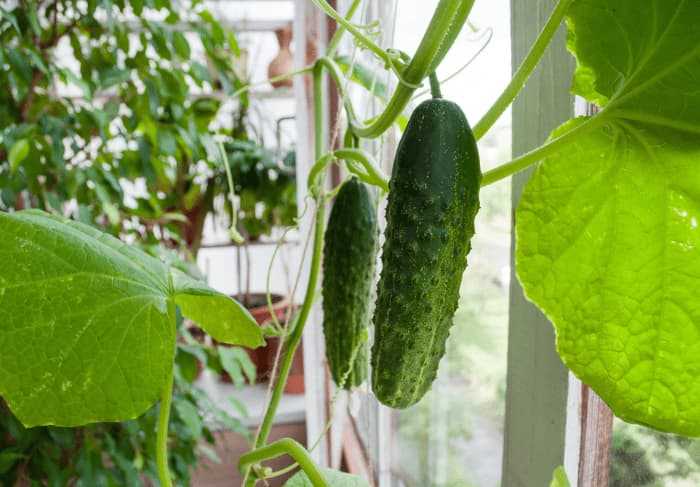
When it comes to growing cucumbers on a balcony, vertical gardening can be a great option. By using climbing varieties, you can make the most of the limited space available and maximize your cucumber yield. Here are some top climbing cucumber varieties to consider:
1. English Telegraph
The English Telegraph cucumber variety is a long and slender type that is perfect for vertical gardening. It has a crisp texture and a mild flavor, making it a popular choice for salads and sandwiches. This variety is known for its excellent climbing abilities and can easily grow on trellises or other vertical supports.
2. Lemon Cucumber
The Lemon cucumber variety is a unique and flavorful option for vertical gardening. It is a small, round cucumber that resembles a lemon in appearance and taste. This variety is known for its vigorous climbing habit and can grow well on trellises or fences. It is an excellent choice for pickling or adding a refreshing twist to salads.
3. Burpless Beauty
The Burpless Beauty cucumber variety is a popular choice for vertical gardening due to its vigorous climbing habit. It produces smooth, dark green cucumbers with a crisp texture and a mild, sweet flavor. This variety is known for its disease resistance and high yield, making it a great option for balcony gardens.
4. Marketmore 76
The Marketmore 76 cucumber variety is another excellent choice for vertical gardening. It produces medium-sized, dark green cucumbers with a slightly tapered shape. This variety is known for its excellent climbing abilities and disease resistance. It is a versatile cucumber variety that can be used in salads, sandwiches, and pickling.
5. Straight Eight
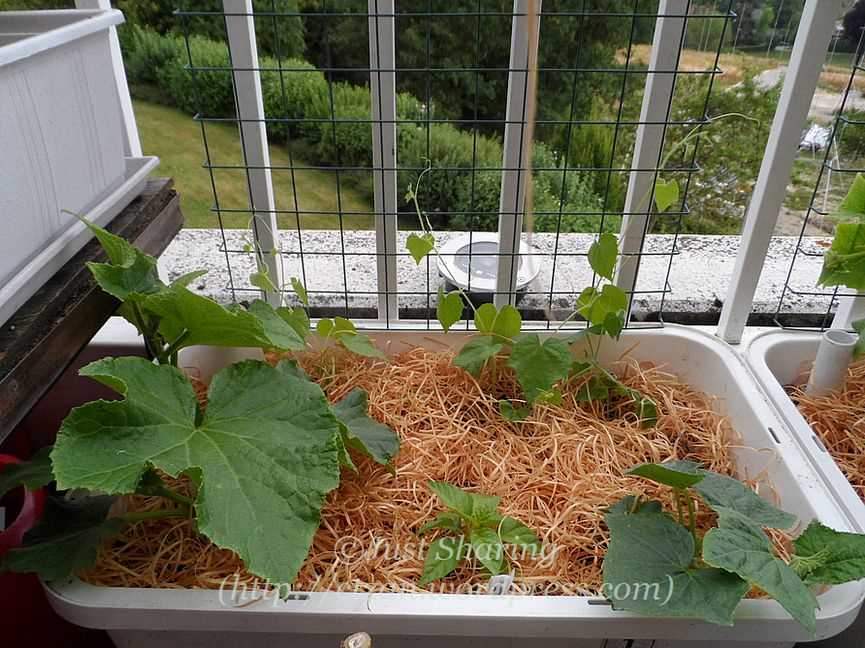
As the name suggests, the Straight Eight cucumber variety produces long, straight cucumbers. It is a popular choice for vertical gardening due to its strong climbing habit and high yield. This variety has a crisp texture and a mild, refreshing flavor, making it perfect for fresh salads or slicing into sandwiches.
Conclusion
When it comes to growing cucumbers on the balcony, choosing the right climbing varieties is essential. The English Telegraph, Lemon Cucumber, Burpless Beauty, Marketmore 76, and Straight Eight are all excellent choices for vertical gardening. By utilizing trellises or other vertical supports, you can make the most of your limited space and enjoy a bountiful cucumber harvest.
Essential Conditions for Successful Cucumber Growth
- Temperature: Cucumbers thrive in warm temperatures, ideally between 70°F and 90°F (21°C – 32°C). Avoid exposing them to frost or temperatures below 50°F (10°C), as it can stunt their growth.
- Sunlight: Cucumbers need at least 6-8 hours of direct sunlight per day. Place your balcony containers in a location where they receive maximum sunlight.
- Soil: Use well-draining soil that retains moisture. Cucumbers prefer slightly acidic soil with a pH level between 6 and 7. Ensure the soil is rich in organic matter and has good water retention qualities.
- Container: Choose a large container with good drainage holes to prevent waterlogged soil. Cucumbers have extensive root systems, so the container should be at least 12 inches deep and 12 inches wide.
- Watering: Cucumbers require consistent moisture, so water them regularly. Avoid overwatering, as it can lead to root rot. The soil should be evenly moist but not soggy.
- Fertilizer: Cucumbers benefit from regular feeding. Use a balanced fertilizer or compost every 2-3 weeks during the growing season. Be cautious not to over-fertilize, as it can cause excessive foliage growth with minimal fruit production.
- Support: Provide support for your cucumber plants to climb, especially if you are growing vining varieties. This can be a trellis, stakes, or a vertical garden system.
- Pollination: Cucumbers require pollination to set fruit. If you are growing cucumbers on a balcony without pollinators, you can hand-pollinate the flowers using a small brush or cotton swab, transferring pollen from the male flowers to the female flowers.
- Pest and Disease Control: Regularly inspect your cucumber plants for pests such as aphids, cucumber beetles, and spider mites. Use organic pest control methods or insecticidal soap to manage infestations. Fungal diseases like powdery mildew can be prevented by ensuring good air circulation and avoiding overhead watering.
Adequate Sunlight
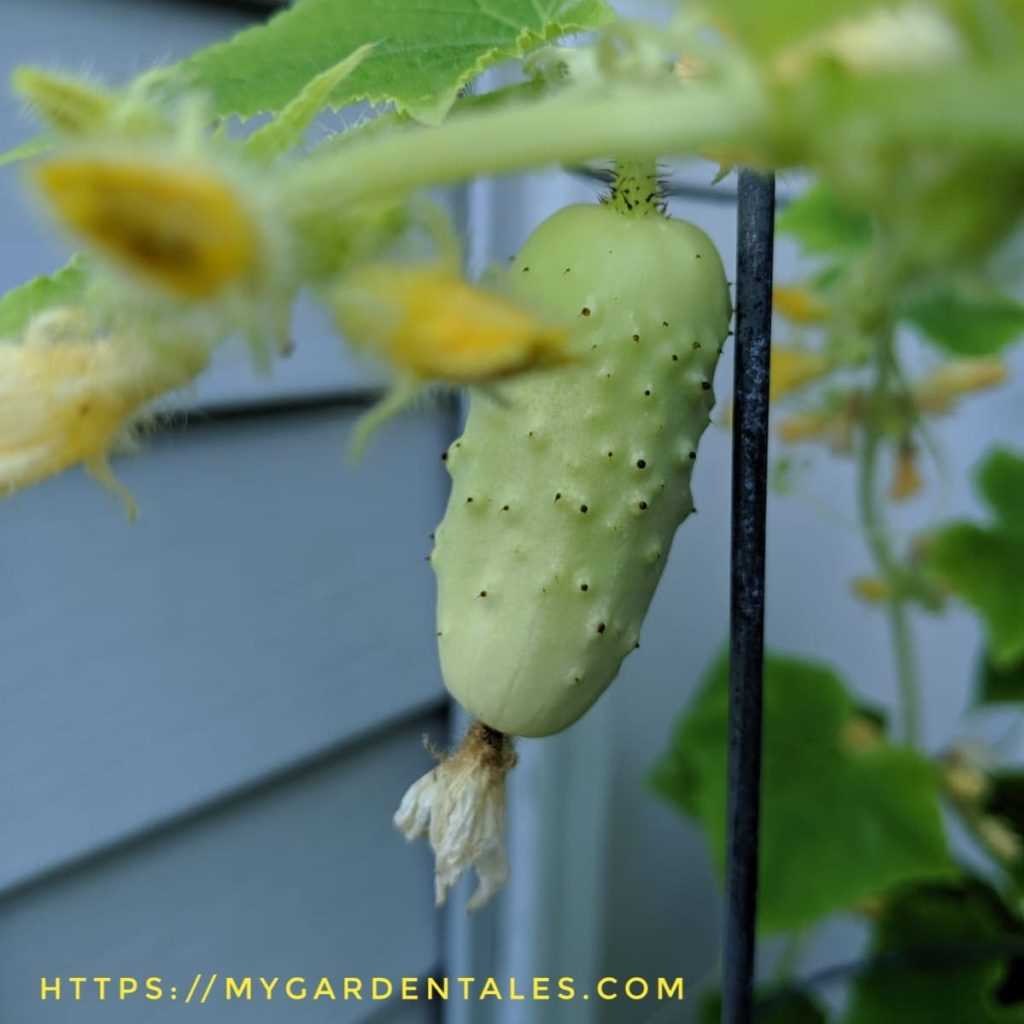
In order to successfully grow cucumbers on your balcony, it is important to provide them with adequate sunlight. Cucumbers prefer full sun exposure, which typically means at least 6-8 hours of direct sunlight per day.
When choosing a spot for your cucumber plants, make sure it is an area that receives plenty of sunlight throughout the day. Balconies that face south or west tend to get the most sunlight, so these locations are ideal for growing cucumbers.
If your balcony does not receive enough direct sunlight, you may need to consider alternative options such as placing your cucumber plants near a window or using grow lights to supplement the natural light.
Remember that cucumbers are heat-loving plants, so they thrive in warm conditions. While they can tolerate some shade, it is best to provide them with as much sunlight as possible to ensure healthy growth and abundant harvest.
Proper Watering and Drainage
Proper watering and drainage are crucial for successfully growing cucumbers on the balcony. Cucumbers require consistent moisture to thrive, but they also need to avoid becoming waterlogged.
Watering Tips:
- Water the cucumber plants deeply, ensuring that the water reaches the roots. Shallow watering may lead to poor root development.
- Avoid overwatering, as this can drown the plants and lead to root rot. Test the soil moisture before watering by sticking your finger about an inch deep into the soil. If it feels dry, it’s time to water.
- Water the plants in the morning to allow any excess moisture on the leaves to dry during the day. Moisture on the foliage can increase the risk of diseases.
- Consider using a drip irrigation system or a watering can with a narrow spout to deliver water directly to the base of the plants. This helps to minimize water wastage and reduce the risk of foliage diseases.
Drainage Tips:
Proper drainage is essential for preventing waterlogged soil, which can lead to root rot and other problems. Here are some tips for ensuring good drainage:
- Choose a well-draining potting mix specifically formulated for containers. This type of soil will provide adequate drainage for the cucumber plants.
- Avoid using regular garden soil, as it tends to compact in containers and can hinder proper drainage.
- Ensure that your containers have drainage holes to allow excess water to escape. If your containers don’t have drainage holes, you can create them by drilling or punching holes into the bottom.
- Place a layer of small rocks or pebbles at the bottom of your containers before adding the potting mix. This will help improve drainage by creating a space for excess water to collect.
- Avoid overfilling the containers with soil, as this can lead to water pooling on top of the soil. Leave some space at the top to allow for proper drainage.
By following these watering and drainage tips, you can create the ideal growing conditions for your cucumber plants on the balcony. Consistent moisture and proper drainage will help ensure healthy growth and abundant harvests.
Nutrient-Rich Soil
Growing cucumbers on a balcony requires nutrient-rich soil to provide the necessary nutrients for healthy plant growth. When choosing soil for your cucumber plants, consider the following:
1. Organic Soil
Opt for organic soil that is free from synthetic fertilizers and pesticides. Organic soil contains a balance of natural minerals, nutrients, and beneficial microbes that promote healthy plant growth.
2. Well-Draining Soil
Cucumber plants require well-draining soil to prevent waterlogging and root rot. Choose a soil mix that has good drainage properties, allowing excess water to flow away from the roots.
3. pH Balance
Cucumbers prefer slightly acidic to neutral soil with a pH range of 6.0-7.0. Conduct a soil test to determine the pH of your soil and adjust it if necessary by adding amendments like lime or sulfur.
4. Organic Matter
Incorporate organic matter, such as compost or well-rotted manure, into the soil to improve its structure and fertility. Organic matter helps retain moisture, provides nutrients, and enhances beneficial microbial activity.
5. Nutrient Supplements
Consider using organic nutrient supplements, such as compost tea or seaweed extract, to provide additional nutrients to your cucumber plants. These supplements can be applied as a foliar spray or added to the soil during planting.
6. Mulching
Apply a layer of organic mulch, such as straw or wood chips, around the base of your cucumber plants. This helps retain moisture, regulate soil temperature, suppress weeds, and provide additional nutrients as it breaks down.
By selecting nutrient-rich soil and providing proper care, you can create an ideal growing environment for your balcony cucumber plants.
Tips for Growing Cucumbers on the Balcony
1. Choose the Right Containers
When growing cucumbers on your balcony, it’s important to choose the right containers. Look for pots or planters that are at least 12 inches deep and wide enough to accommodate the full size of the cucumber plants. Make sure they have drainage holes to prevent waterlogging.
2. Select the Best Cucumber Varieties
Not all cucumber varieties are suitable for growing in containers. Look for compact or bush varieties that are known for their ability to thrive in small spaces. Some popular choices for balcony gardening include ‘Patio Pickles,’ ‘Bush Champion,’ and ‘Fanfare.’
3. Provide Ample Sunlight
Cucumbers need at least 6 to 8 hours of direct sunlight each day to grow and produce fruit. Place your containers in a sunny spot on your balcony, preferably facing south or west, to ensure they receive sufficient sunlight.
4. Use Quality Potting Soil
Fill your containers with well-draining potting soil that is rich in organic matter. Avoid using garden soil, as it may contain pests or diseases that can harm your cucumber plants. You can also add compost or aged manure to enrich the soil.
5. Water Consistently
Cucumbers require consistent moisture, so water them regularly to keep the soil evenly moist. Check the moisture level by inserting your finger into the soil; if it feels dry, it’s time to water. Avoid overwatering as it can lead to root rot.
6. Provide Support
As cucumber plants grow, they will need support to prevent their vines from sprawling on the ground. Install trellises, stakes, or cages in your containers to provide the necessary support. Train the vines to grow vertically, which will save space and promote better air circulation.
7. Fertilize as Needed
Feed your cucumber plants with a balanced liquid fertilizer every 2 to 3 weeks or as directed on the product label. This will provide them with the essential nutrients they need to grow and produce a bountiful harvest.
8. Monitor for Pests and Diseases
Regularly inspect your cucumber plants for pests such as aphids, cucumber beetles, or powdery mildew. If you notice any signs of damage or disease, take immediate action to prevent further infestation. Consider using organic insecticides or fungicides if necessary.
9. Harvest at the Right Time
Harvest your cucumbers when they reach the desired size. Different varieties have different optimal sizes, so check the seed packet or plant label for guidance. Be gentle when picking the cucumbers to avoid damaging the plants.
10. Rotate your Crops
To prevent soil depletion and reduce the risk of pests and diseases, rotate your cucumber crops each year. Avoid planting cucumbers in the same spot on your balcony for consecutive seasons.
“Question-Answer”
Can I grow cucumbers on my balcony?
Yes, you can definitely grow cucumbers on your balcony. As long as you have a sunny spot and a container large enough for the plants to grow in, you can successfully grow cucumbers on a balcony.
What are the best cucumber varieties for growing on a balcony?
There are several cucumber varieties that are well-suited for growing on a balcony. Some popular choices include “Bush Champion,” “Spacemaster,” and “Patio Snacker.” These varieties are compact and produce smaller cucumbers that are perfect for containers.
How much sunlight do cucumber plants need?
Cucumber plants need at least 6 hours of direct sunlight per day to thrive. If your balcony receives less sunlight than this, you may need to supplement with artificial lighting or consider growing a different crop that requires less sunlight.
How often should I water my balcony cucumber plants?
Cucumber plants need consistent and adequate water to grow. In general, you should water your balcony cucumber plants deeply and regularly, aiming to keep the soil consistently moist. However, be careful not to overwater, as this can lead to root rot.
Do I need to provide support for my cucumber plants on the balcony?
Yes, it is a good idea to provide support for your cucumber plants, especially if you are growing vining varieties. This can be done using trellises, stakes, or cages. Providing support will help the plants grow vertically, save space, and improve air circulation.
Can I grow cucumbers on a small balcony?
Yes, you can definitely grow cucumbers on a small balcony. There are compact cucumber varieties specifically bred for small spaces. Additionally, you can use trellises or vertical gardening techniques to maximize space and grow cucumbers vertically.
